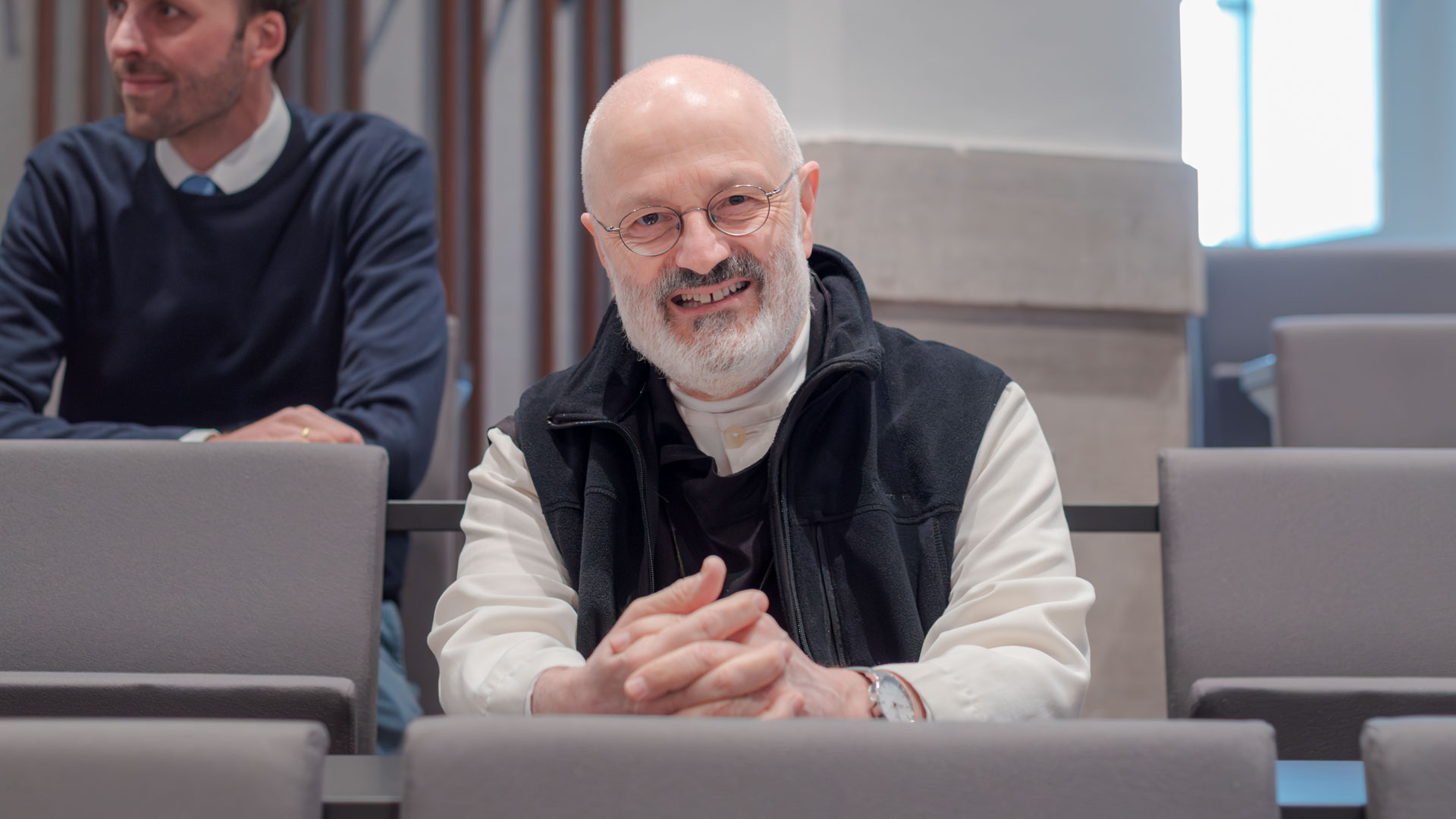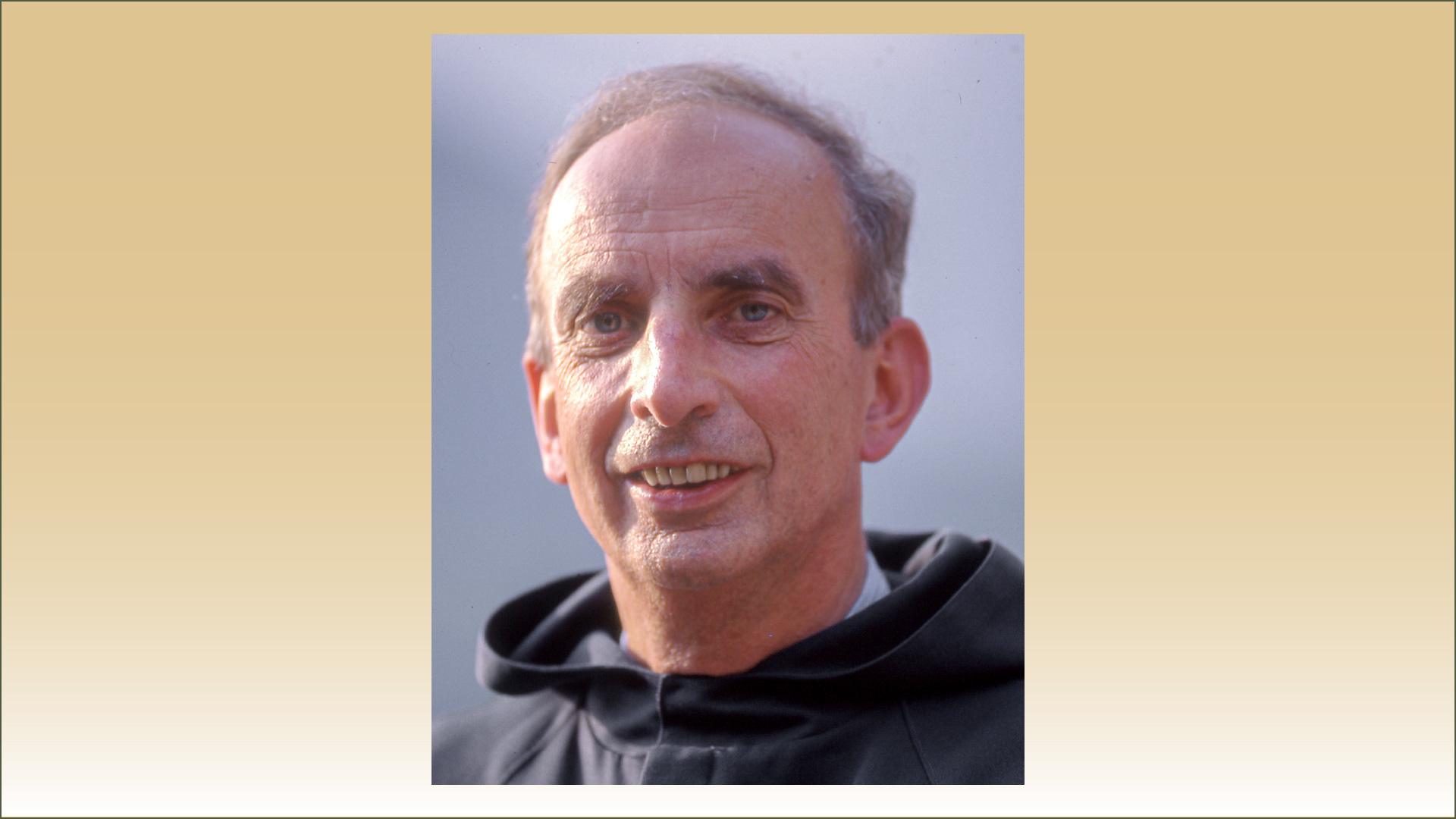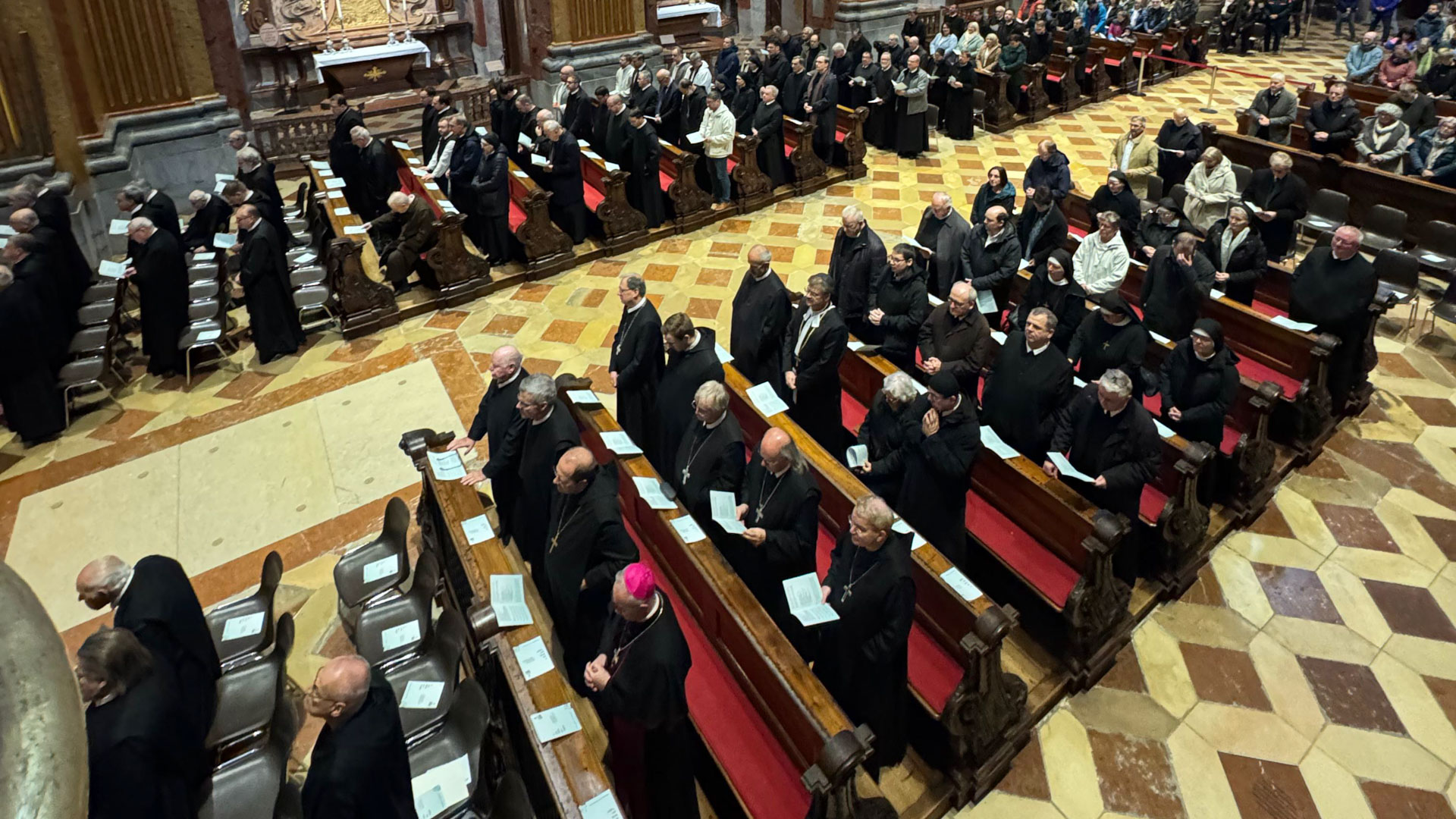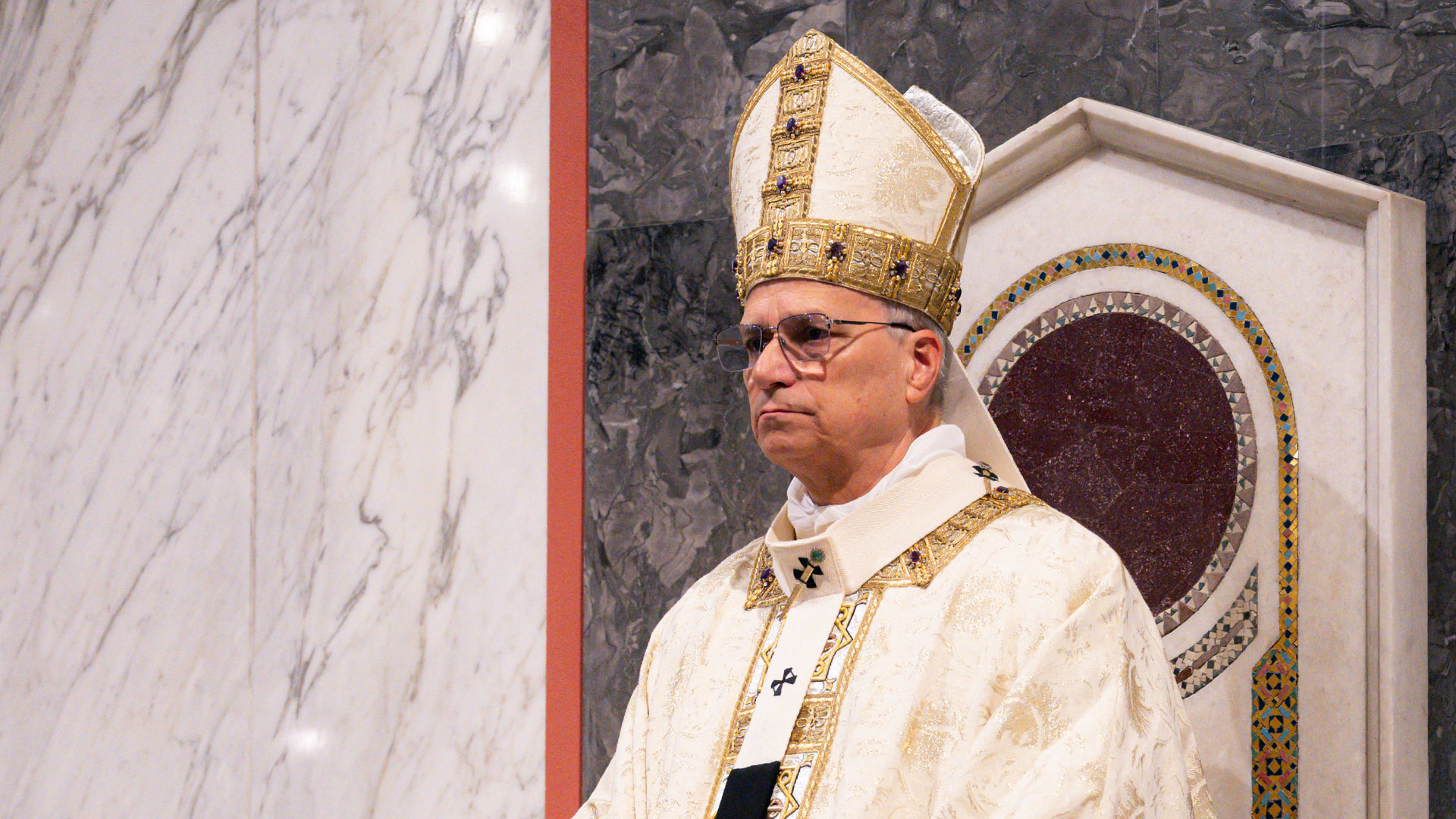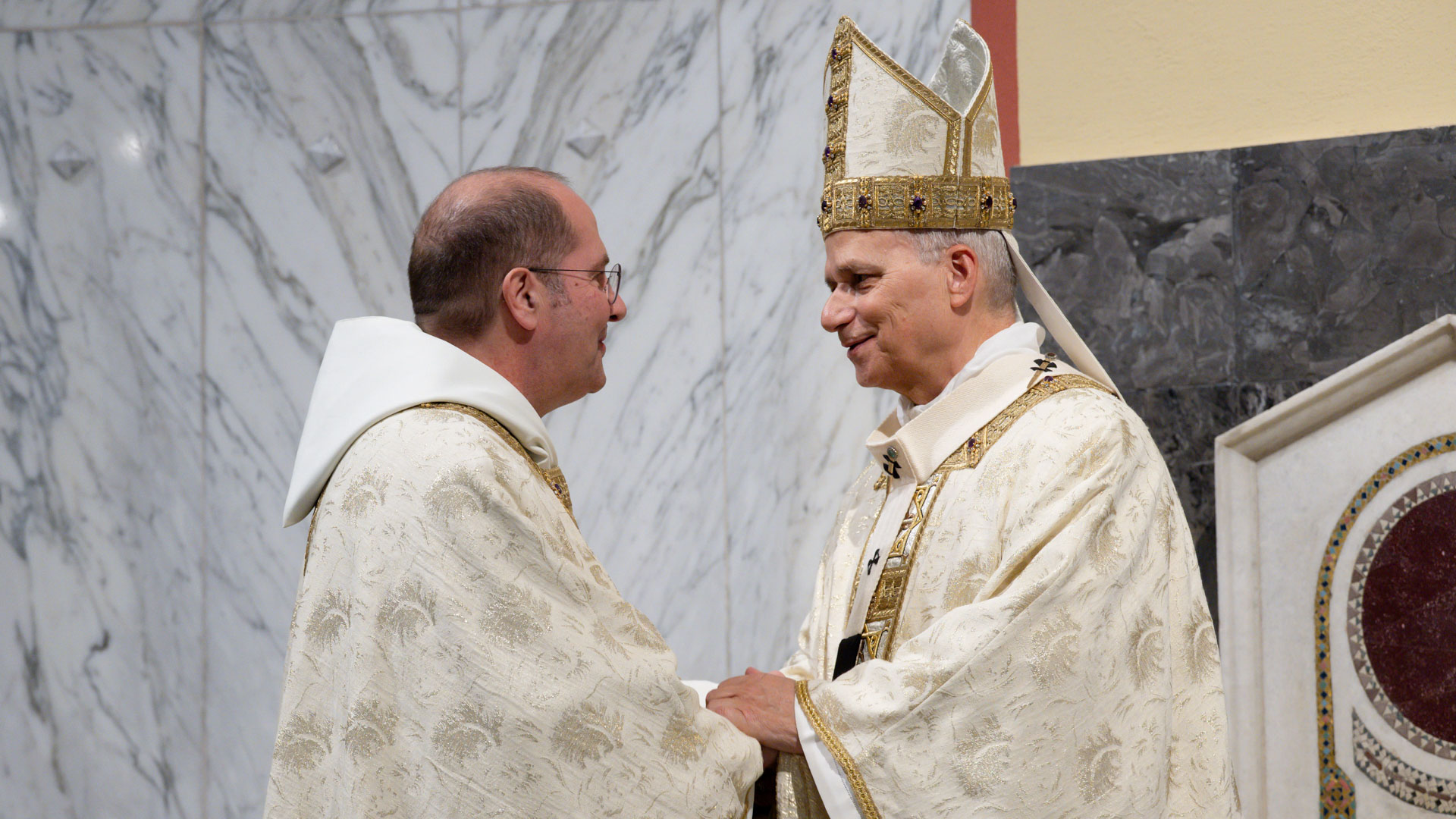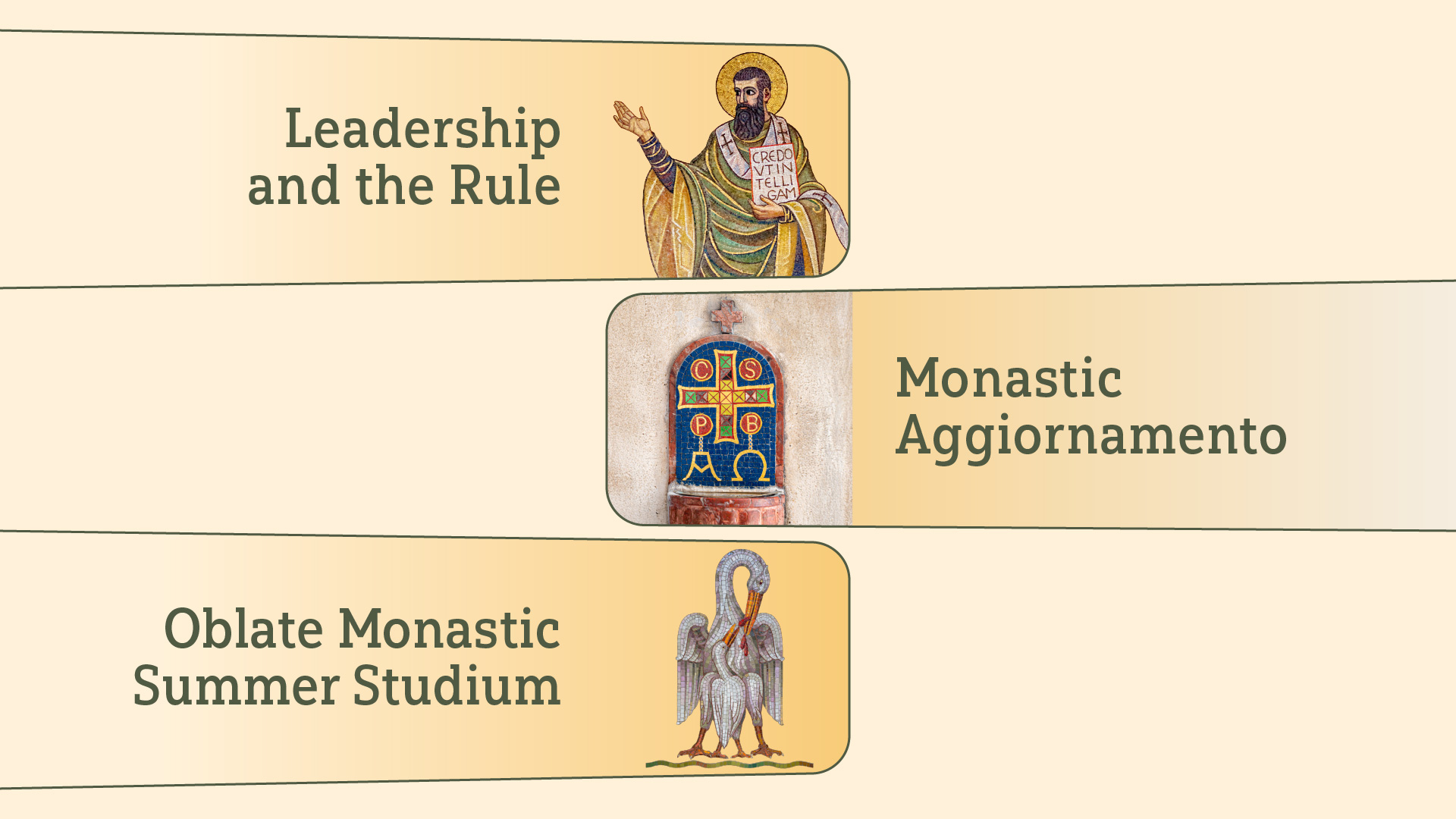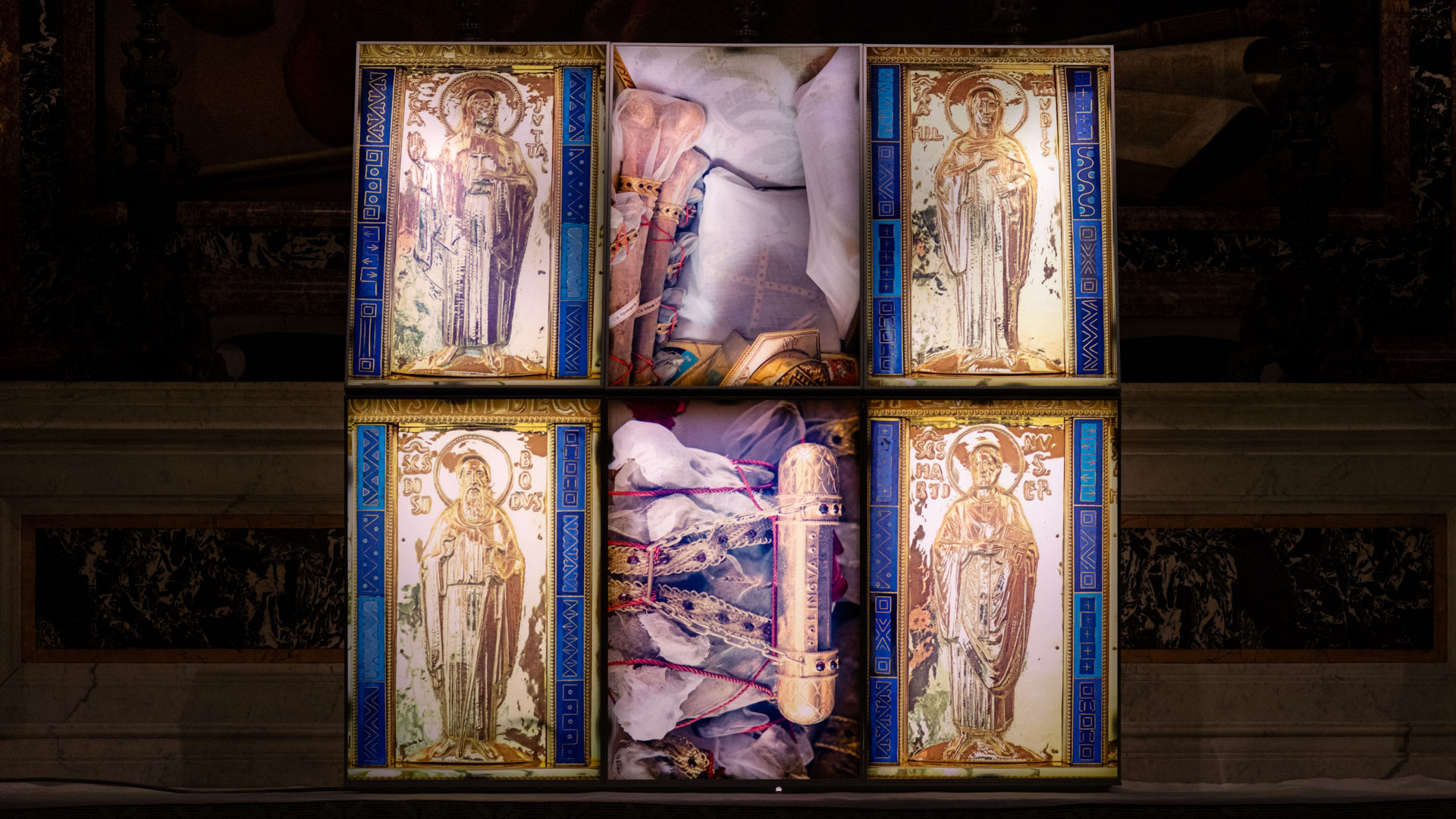10 April 2025
Abbot General Mauro-Giuseppe Lepori O.Cist.
I’ve been asked to speak specifically on the theme of formation. I’ll try to pass on a few reflections from my own experience, especially in the context of the life of my Order, which I’ve come to know so well over the past 14 years as Abbot General, in the different continents and cultures in which it is spread. Since you are on the eve of the choice of a new Abbot Primate, I will focus a little more specifically on the experiences and feelings I have in this area in relation to the current situation of the communities I visit and the monks and nuns I meet. I know that today, in the different Orders, we are living more or less the same experiences, the same challenges, the same reasons for joy and hope, but also for disappointment and concern for the future.
Always disciples
Ever since I entered the monastery 40 years ago, it’s been clear to me that being a monk and being a disciple are identities that coincide. But also, since I’ve been abbot, that is, for 30 years, I can say that it’s the same thing: to be abbot and disciple, to be father and to be son, to form and to be formed, it’s the same thing, or it should be. And when this coincidence doesn’t happen, or isn’t at least desired and therefore revived, the result is a sad sterility.
The year of my novitiate, I saw Dom Sighard Kleiner (1904-1995) return to Hauterive, after 35 years of ministry in Rome, mainly as Abbot General. For us young people, his presence among us was a great help to our formation, not only and not so much for the courses he was able to offer us, but because at over 80 and after so many years of governing the Order, and participating in the Second Vatican Council, he was still and always a disciple among us, a monk who listened, read and meditated every day. This example remains imprinted in me and, today more than ever, prompts me to examine my conscience about what in my ministry, or in that of the superiors with whom I walk, proves sterile, ineffective, incapable of generating life, of truly supporting the most fragile (and today everyone is fragile), of accompanying a path which, despite the difficulties, moves forward and does not stop in the stagnant waters of self-referentiality, capricious narcissism or an ever-unsatisfied worldliness.
We know that there is no shortage of constant calls in the Church and in our Orders for the ongoing formation of superiors and all the members of our Institutes. There is no shortage of course proposals, tools, materials and collaborations to foster our ongoing formation. There are positive results. But there have also been many disappointments, many abandonments, sometimes absurd in their motivations and modalities. Their frequency has perhaps led us to stop being surprised. But we should at least ask ourselves what all this is asking of us, what it’s inviting us to do, and what conversion it’s provoking.
More positively, we can ask ourselves: what is it that drives so many elderly monks and nuns to remain listening disciples, thirsting for formation and conversion, as I was saying about Dom Kleiner? Often, we simply rejoice with them at the freshness of spirit they retain well into old age, hoping that our own brains, which already seem tired and lacking in flexibility, will suffer the same fate. But is this really what makes disciples, even in old age? Indeed, there are elderly monks and nuns who remain disciples despite the diminished physical and intellectual faculties required for reading and learning.
Training and vocation must not be dissociated
No, the real secret of these eternal disciples lies not in the brain, but in the spirit. Their secret lies in not dissociating formation from vocation. Not so much a vocation to a particular service or ministry, but a vocation to follow the Lord on the “path of life” that He, “in his mercy”, has chosen for each of us by calling us to the monastic life according to St. Benedict (cf. RB Prol. 20).
The Rule of St. Benedict is imbued with this constant and total inherence of formation to vocation, and I certainly don’t have to teach it to you. So much so, that to follow the monastic vocation, St. Benedict does not say he is founding a monastery, but a schola of the Lord’s service (RB Prol. 45). Everyone, from novice to abbot, must always be trained to listen to the Word of God and the Church. It’s not just a matter of prior training, which we acquire at the beginning and can live by, but a constant attitude, because Christ calls us to follow him now as he called us at the beginning. If the abbot is to know how to draw from the Word of God things old and things new (RB 64, 9), this means that he must continue to listen to it today as he did yesterday. Newness, even when it is the fruit of an old root, always derives from a gift gushing forth from the Holy Spirit. Newness is the original event that remains present and alive for us and for everyone. The source is the origin that remains present, gushing forth now, and it is only by drawing from it now that we can pass on to others a water that remains gushing, pure and fresh.
The dissociation between formation and vocation seems to me to be the most widespread educational error today, as it has been in other times of crisis in monastic life, but also in religious life in general, not to mention the Christian life as a whole. It’s as if we were pretending to follow the Master without listening to Him, without learning everything from Him, without imploring: “Lord, teach us!”, and not just “to pray” (Lk 11:1), but to live, to live a life that is the beginning of eternal life in this life. It’s as if we weren’t listening to Christ who, in calling us, in choosing us as disciples, tells us: “Learn from me… and you will find rest for your souls” (Mt 11:29).
What does it mean to learn from Christ? Why, even when we’re studying theology or other subjects that are useful and, let’s face it, necessary to our lives, do we feel as if we’re slowly leaving the “school of the Lord’s service”, moving away, like the rich young man, from the gentle and humble Master? What is it that frightens us about this school, about this Master who is always patient, always ready to repeat his lessons, who doesn’t give exams, who doesn’t give grades, who doesn’t make the class repeat a year? And why, above all, do we pretend to be at his school, to learn his things, his subjects, his words, his morals, his philosophy of life, but as if we’d rather hang out with teachers who talk to us about Him instead of Him talking to us?
Training in the interests of Christ
The subtle infidelity that creeps into the training we offer or receive is all to do with the fact that we want to be his disciples without agreeing to renounce our own life project. Saying “yes” to our vocation and becoming true disciples of Christ is not possible without entering, at least as a desire, into his project for us, which corresponds to the Father’s plan to make us his children in his only Son. Christ is our Master, leading us to this fulfillment of life in Him with the Father in the gift of the Spirit. Christ asks us to renounce our ultimately illusory self-project in order to enter into the reality of the life that He, the resurrection and life of life, is for us, if we follow Him.
I have the impression that it is on this point that we have all strayed a little from the path traced out by the Master and Lord, forgetting that his first lesson in life and vocation is the washing of feet, his teaching pulpit the Cross, his wisdom the gentleness and humility of his Heart. We have slipped off this path through an imperceptible but progressive conformation to the world, to its projects, to its idolatry of success, of personal fulfillment. I confess that more and more often, when I look at our communities, at the young people who enter and stay, at the way some superiors govern, etc., I find myself exclaiming with Saint Paul: “In reality, everyone is seeking his own interests, not those of Jesus Christ” (Philippians 2:21).
Mind you, it’s always been that way, if St. Paul says so. The problem is when we no longer realize this, when we no longer feel the pursuit of our own interests as an infidelity from which our hearts need to be converted again and again until the end. The problem arises above all when we come to identify vocation with the pursuit of our own interests, without even thinking that Christ might have interests other than our petty individual interests. The problem is when we want to attract vocations to the monastery with propaganda that promises nothing but narcissistic self-fulfillment, just like any gym or university for mama’s boys.
We’re a long way from the Rule‘s requirements for welcoming vocations: let them knock on the door for four or five days, responding with insults and other difficulties opposed to their entry (cf. RB 58, 3), then check whether the novice is prompt and eager “ad opprobria” (58, 7), i.e. to everything in the monastery that will be more or less opposed to his tastes and plans.
The center of preference
We know that for St. Benedict – always careful not to break the vase by trying too hard to scrape off the rust, and not to crush the already shattered reed (cf. RB 64, 12-13) – this endurance is not demanded as a proof of stoic strength, but as a proof of preference for Christ, a proof of love for Him. The one who is truly in love does not give in to the obstacles that separate him from his beloved.
Is this not also where our formation has lost its compass? Have we not lost the mystique of Christ the beloved Bridegroom, of Christ the fullness of heart and life? Have we not lost the sense of Christ as the one next to whom we have nothing dearer (RB 5, 2)? Do we still formulate the mystique of preferring Christ to ourselves, as the true and real fulfillment of our self, of our life?
When this is lost, everything is unbalanced. By neglecting the pivot and center of the vocation, Christ who calls us to Himself, we inevitably lose the orientation and unity of all that the vocation implies. We no longer know how to regulate all these fragments, which only make sense if a center orders and harmonizes them, giving each fragment its task, function and regulation in relation to the whole. When I see the clumsiness of so many superiors and communities in regulating the use of the internet and social media, I wonder if the problem isn’t much more general: are we sure that the other elements of our lives, such as work, relationships, rest, the liturgy itself, are already harmoniously integrated into a Christ-centered life? If Christ is not at the center, even the Eucharist becomes a fragment that fails to find its place and function.
This is why St. Benedict established the school of monastic life as a community in which the liturgy and the abbot are what always point to Christ as the center of life, reminding and educating us to remember Him, to return to Him, to live everything for Him, with Him and in Him.
The Rule teaches us to feel called to Christ and by Christ at every moment and in every aspect of life. For every aspect of life, the Rule teaches us to listen to a word from God that calls us to Him. Training to listen is the same as training to follow. In the Rule, there is no dichotomy between vocation and formation.
A few months ago, I carried out the canonical visitation of our largest monastery, in terms of number of monks: 216 monks, in Vietnam. We listened to 186 brothers. For the first time, I heard them express their concern about the sharp drop in vocations that is taking place there, as in the rest of Asia. Even the youngest are worried about this phenomenon. To our Western eyes, accustomed for decades to these lean times, this concern may seem unfounded, since they still have more vocations every year than we have had for perhaps 30 years. I realized, however, that this unease, this fear of a future that seems to promise less and less, could be the sign of a time of grace that will call these monasteries to an awakening of conscience. God calls us not to worry so much about vocations as about vocation. Having so many vocations often makes us forget vocation, which is the only thing that counts, even when there are many vocations. It’s a question that touches directly on the subject of formation. Often, as in the past in Europe or America, the abundance of vocations has led to the neglect of vocation formation. But excessive fragility has also often led to neglect of the need to nurture the vocation to the end, because the vocation is given to us to follow Christ to the end. To live a vocation, it is not important to be many or few. If we don’t take care of our vocation, it’s useless to be many, and sad to be few. If vocation is cared for and shaped, being many becomes a grateful and humble fruitfulness, full of responsibility, and being few becomes an opportunity for offering that is fulfilled in the Paschal fruitfulness of the seed that falls into the earth and disappears to bear the abundant fruit that God wants.
Circularity of states of life
However, I would like to conclude with a reflection on an aspect that, in my opinion, should not be forgotten when we think about monastic formation. We all run the risk of conceiving in isolation the formation proper to the state of Christian life to which we are called in the Body of Christ which is the Church. And this is true whether we belong to the state of consecrated life, the state of clerical life or the state of lay life. As if an organ of a body could develop and function independently of the body to which it belongs. On the contrary, the heart can only develop if it beats for the whole living body; the head can only develop its function of governing the body if it sends nerve impulses to every member and receives them from every member. The same applies to each limb in relation to the head, the heart and the other organs or limbs of the body.
The synodal impulse that we are seeking to revive in the Church today can be an excellent opportunity to rediscover or initiate in every state of life and every vocation a formation sensitive to the complementary circularity of states of life for the vitality of the whole ecclesial body. In short, it’s a question of allowing ourselves to be formed by the complementarity of other states of life within the one Body of Christ.
It seems to me that today we urgently need to rediscover a healthy awareness of this complementarity of all states of life, founded on Baptism. Often, this complementarity is thought of only as an exchange of substitute services (for example, laypeople coming to pray in the choir instead of monks), or it is lived by nibbling away at the spaces of power proper to each state of life (for example, when we think that the promotion of laypeople consists in their clericalization, or that religious are useful if they assume a diocesan pastoral role). On the contrary, the real need of each state of life is for the other states of life to fully live out their specific vocation and mission. To live religious and monastic life to the full, we need the other states of life, clerical and lay, to live their vocation to the full. And every fully lived state of life helps others to live their own fully. In other words, it’s far more helpful to monastic life if lay people devote themselves totally to the secular nature of their vocation, rather than expecting them to replace us in our vocation by neglecting their own.
True collaboration is that complementarity in which each state lives its own vocation, and each state is aware and experiences that the vitality of those living in other states is also an achievement for themselves. For we are different, yet complementary and co-essential members of the same body.
It’s far more fruitful for everyone and for the whole Church if monasteries help lay people to be lay people, priests to be priests, and lay people and priests to help us to be monks.
But even to live like this, we need a monastic formation founded on a solid, clear and above all grateful awareness of the mystery of the Church in which we are saved and sanctified by Christ the Redeemer.

